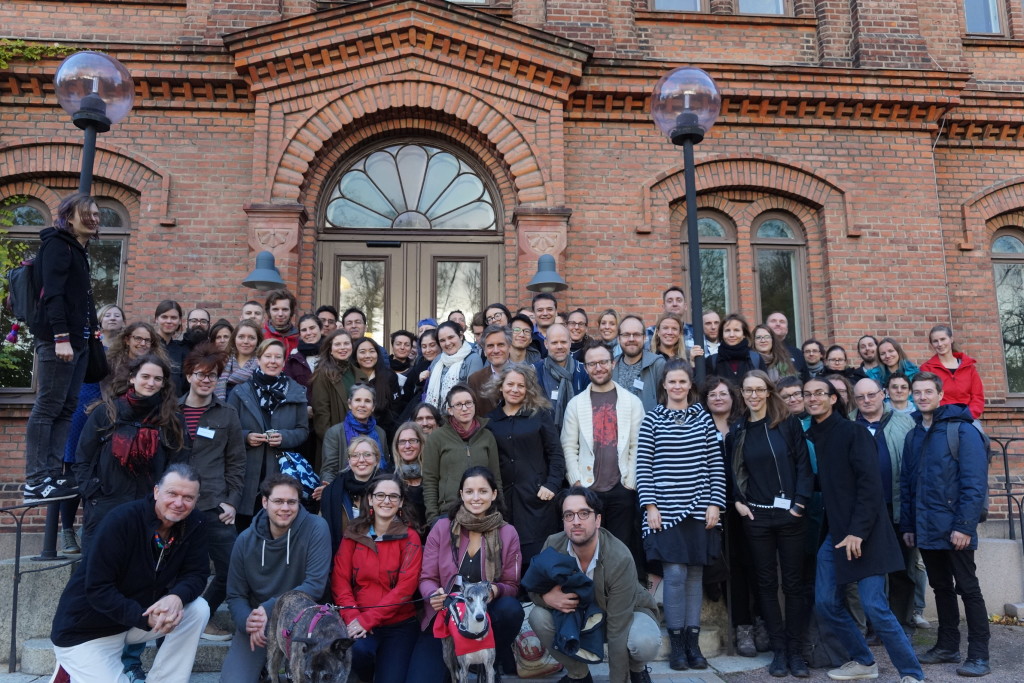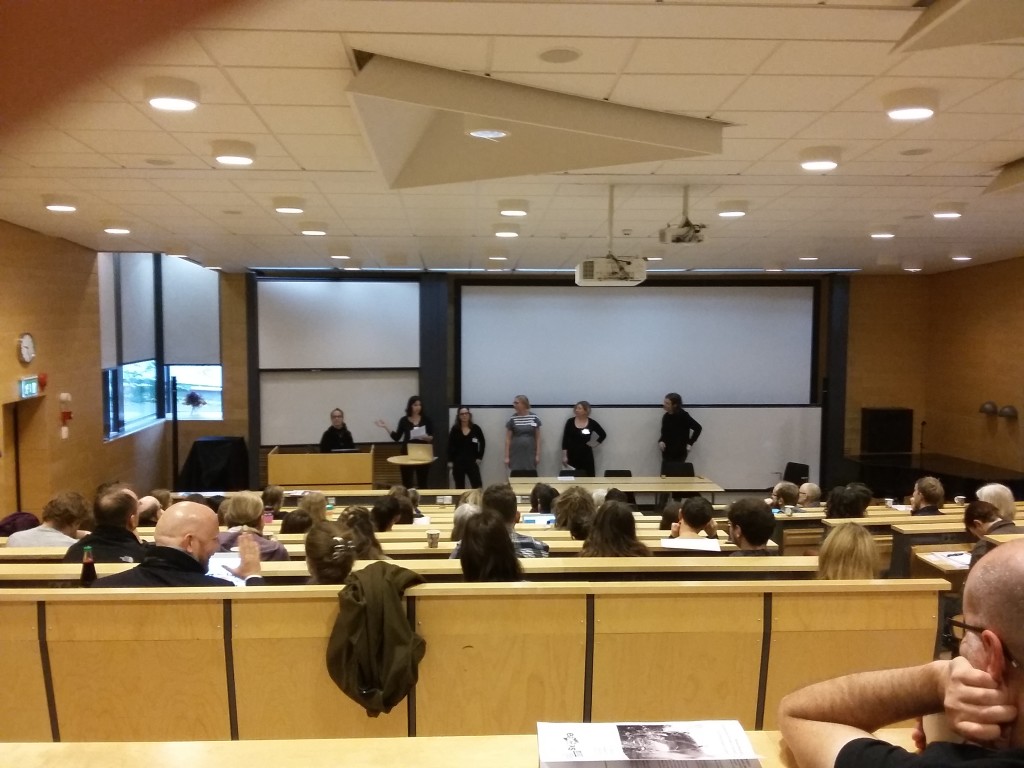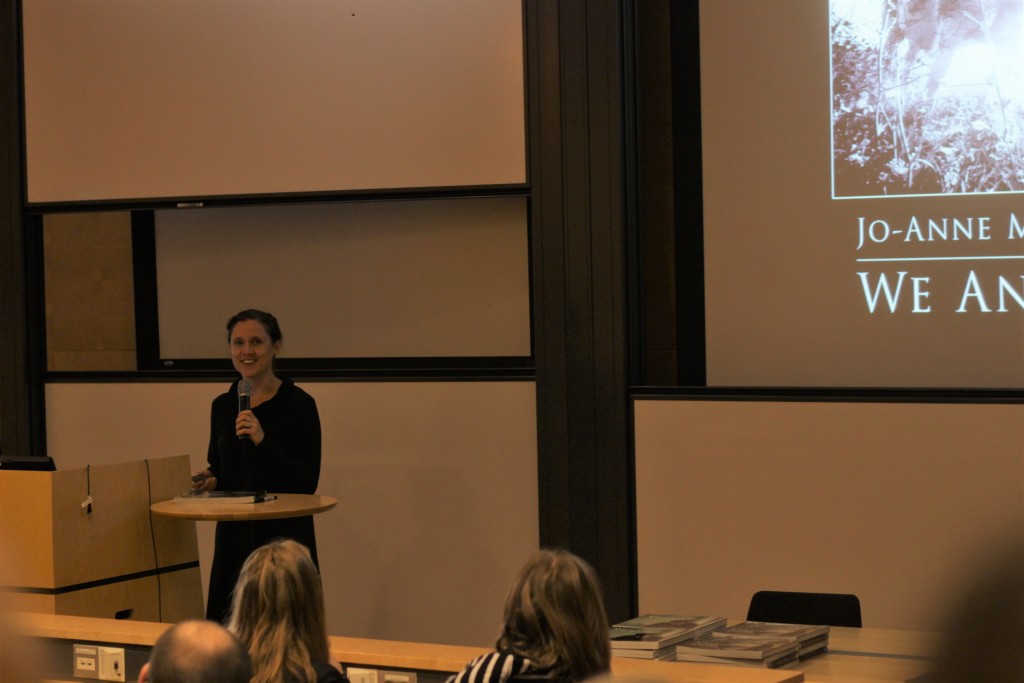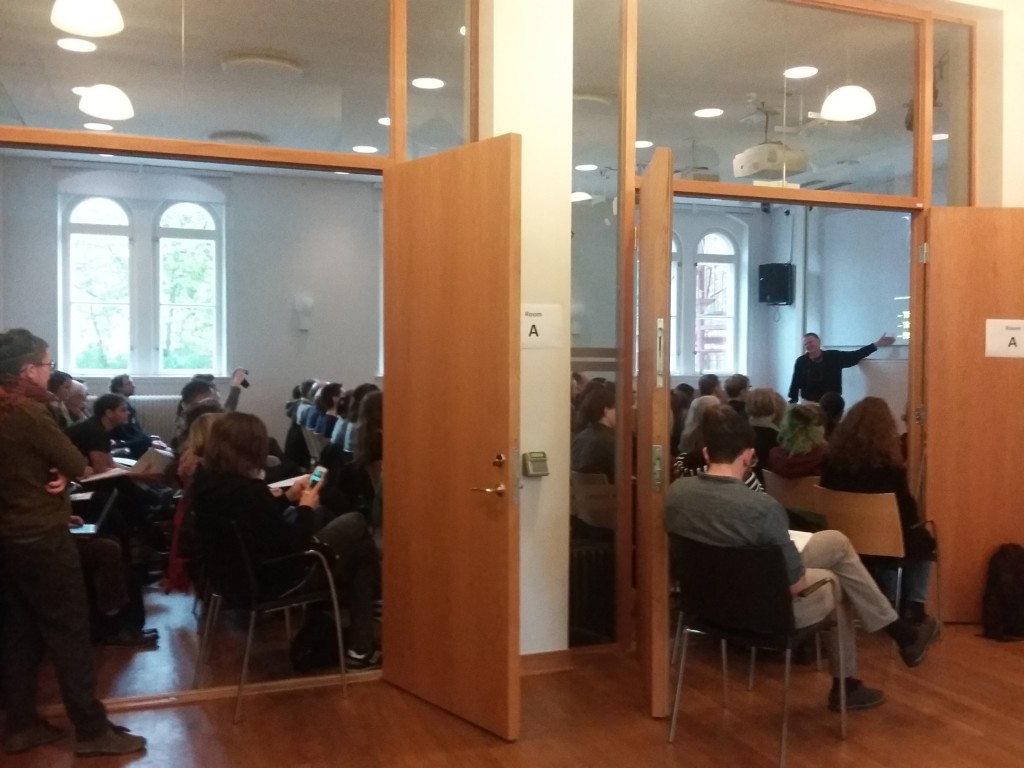CfHAS PhD candidate Abi Masefield (UK) offers a review of the recent Fifth European Conference for Critical Animal Studies, held at the Pufendorf Institute, Lund University, Sweden 26-28th October 2017
NONHUMAN ANIMALS IN SOCIETY: EXPLORING NEW PATHWAYS FOR RESISTANCE, CHANGE, AND ACCOMMODATION
The European Association for Critical Animal Studies (EACAS) www.eacas.eu
This was my first Critical Animal Studies (CAS) Conference and set against the backdrop of bright Autumnal Lund I was certainly not disappointed. The stated aim of this conference was to ‘display how scholarly work can contribute to eliminate the domination and oppression of all animals’. It was very much an international event with over 125 people attending from over 19 countries spanning 5 continents, and the event was impressively managed by the 6 strong organizing committee (The full programme can be found at: https://animalsconferencelund.wordpress.com/).
Spread over three full days, the skeleton of the conference was structured around a quartet of key note presentations by Zipporah Weisberg; Jo-Anne McArthur; Erika Cudworth and Matthew Cole; and Volker Sommer. In between these deep-dives, the classical conference structure of parallel panel presentations prevailed to flesh out the content and provide an abundance of opportunities for researchers to both share their work and digest the rich offerings of others. Personally, I had not anticipated just how important the feedback I received following a presentation of my own research (at Edge Hill University – exploring the intersections of coloniality and speciesism in development discourse around tackling hunger and malnutrition and ‘the right to food’ with ‘the right to not be food’) would be in terms of helping me to prioritise the relative significance of certain messages as well as to fire up my motivation.
Coffee breaks (known as ‘fika’ in Swedish and sometimes accompanied by a delicious sweet treat to energise participants) often felt too short to continue conversations and a delicious dinner at Kao’s vegan restaurant in Malmo provided a much needed breathing space for further discussion.
Of course, a conference is experienced from specific vantage points. Looking back, this one was nothing less than a richly orchestrated three-day firework display of explosive ideas, sparking questions and colourful interactions. As a researcher embarking on the daunting adventure of a PhD the overall effect was both dazzling and inspiring.
The key note presentations were each fascinating in their own way. However, one in particular stood out by resonating with my own research and introducing me to a key thinker who I had somehow failed to register so far in the wanderings of my literature review. So I am especially grateful to Lund for acquainting me with Erika Cudworth and her insights into the ‘theoretical and political challenges to exclusive humanism’ and the animalization inherent not only in colonialism, but in the entire ‘civilizing process’ in which we are all caught up and thereby alienated from our animal selves. Erika’s paper setting out a ‘posthumanist manifesto’ and call for a ‘strategy of terraism’ starts from both the ‘bodied nature of the human’ and the ‘shrinking of the idea of the human as we know it.’ Needless to say, I have been hungrily exploring her writing in the weeks since the conference.
So many other ideas have continued to resonate through my thinking long since the conference ended. Zipporah Weisberg’s discussion of animals’ capacity to care as an additional confirmation of their agency has opened my awareness (as a Terran) in reconnecting with animals. Jo-Anne McArthur’s powerful images have reinforced my appreciation of the requirement to resist the urge to turn away. David Pederson’s ‘Meat-a-Physics’ has made me more determined than ever to better understand meat as a core identifier of humanism. Iselin Gambert and Tobias Linne’s exploration of the entanglement of milk with colonial power and white supremacy drew important connections. And whenever I hear ‘the news’ before long I am reminded of Terry Hurtado’s examination of the connection between dehumanisation and animal suffering in times of war and the characterisation of war as the animalisation of humans (the exclusion of the human enemy from the moral community).
The conference also pushed participants to think more about the potential value of Marxist perspectives for critical animal studies (particularly Adorno with reference to the human’s forgotten ‘likeness to animals’) and invited participants into urban spaces as well as among camel and chimpanzee communities.
With the conference drawing to a close, inevitably, and just like every delicious feast, satiation began to set in and I started to realise that my mind was getting tired. But as my youngest daughter always reminds me, no matter how full we may feel, there is always a room for a desert. So, it was with EvaMarie Lindahl’s innovative and deeply moving performance piece, set in the Bishops House gallery and evolving from her practice based doctoral project in which she rewrites art from the perspective of the non-human animals who are standing inside the frame. EvaMarie is a Malmo based artist and doctoral student with the Centre for Human Animal Studies at Edge Hill University. This unexpected experience, transporting those present to an entirely different realm, made the perfect closure for a weary brain, as it spoke to somewhere entirely different – perhaps more embedded in my animal self.
As thoughts turn to the next CAS Conference – Barcelona in 2019 – EvaMarie’s performance also lights up the tremendous creative possibilities presented by the opportunity to go bolder, re-imagine and further de-civilize the very institution of the Conference (carnference?) – one that remains so firmly rooted in the ‘civilizing’ project. To harness the performance itself to contribute to destabilising the classical divides of human and animal, mind and body, theory and practice, academic and activist that gave rise to the birth of Critical Animal Studies in the first place.
But before time moves on, what remains to be said is one final and truly heartfelt THANK YOU to Lund for making possible an unforgettable exchange with such wonderful people. This conference was a special moment – the sort that occur only occasionally in life, but will be treasured for long after.
Abi Masefield (PhD Candidate, Centre for Human-Animal Studies, Edge Hill University, UK)
January 2018



